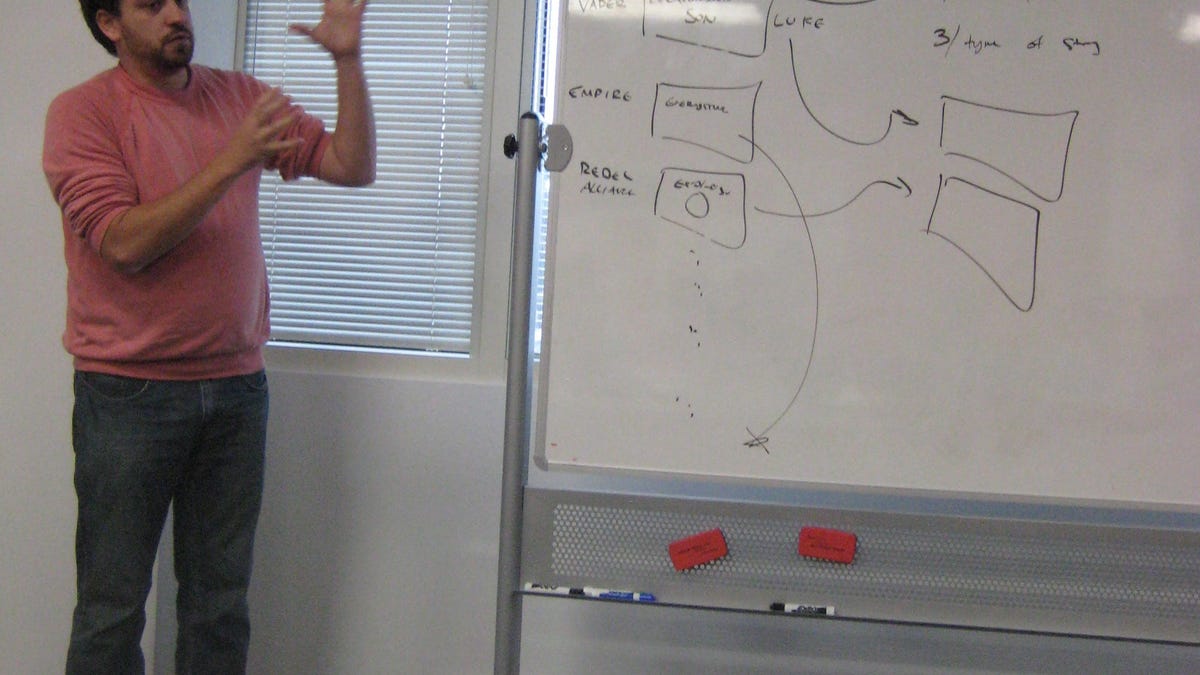How does Facebook decide which posts you see? Let Yoda explain
Some corporate marketers have complained that Facebook isn't showing all their posts to all their fans. So the social network strikes back with examples featuring a certain short-statured Jedi master.

Facebook's been under a lot of scrutiny lately to explain why some brands' posts haven't been reaching as many users as usual, so it brought in a big name to shed some light on the process: Yoda.
Facebook Product Manager Will Cathcart channeled the fabled Jedi Master to explain how the network's algorithm, called EdgeRank, works to keep irrelevant content off a users' feed. If Yoda continually tells Facebook that he doesn't want to see updates from the Death Star, the algorithm makes sure he won't.
"What would Yoda do if he sees this story?" Cathcart said at a press conference Facebook held today after accusations surfaced that the social network was slighting brands with its algorithm.
Cathcart explained that which News Feed posts pop up depend on several factors -- the user's reaction to the post's publisher, other people's reactions to the specific posts, and what type of story the post is. When it comes to mobile, Facebook also considers what kind of content is best for a device. If a user has a feature phone, Facebook figures that the user won't want to see photos and puts less importance on showing those posts.
Additionally, Facebook did a major tweak in September and started factoring in how likely a user is to complain about a post. Cathcart said this changed which posts were seen drastically, but while some brands saw less engagement, others saw more.
This fluctuation spurred some discussion among brands about how this affects their reach -- i.e., how many of their fans actually see their posts.
One way to sidestep the algorithm is for brands to pay for a promoted post-- those posts land at the top of the news feeds. The whole process has led to allegations that Facebook was squeezing marketers by algorithmically limiting their free distribution -- but offering paid promoted posts as an alternative.
Matt Idema, Facebook's director of monetization product marketing, said the company's goal is to make sure brands, particularly small brands, can publish quality material that fans want to see. This was the idea behind promoted posts, Idema said.
He said promoted posts are meant to be a simplified advertising tool for the "millions of small business Pages posting to Facebook everyday," who don't have sophisticated tools like larger companies have.
Cathcart's reaction: Facebook offers a variety of ways for brands to reach their fans, including a slew of unmediated feeds -- all with deeply unintuitive and jargony names like "Pages Feed" and "Games Feed" -- that sidestep Facebook's relevancy algorithm altogether.
Additionally, the company is working on creating more tools for businesses to track which posts do well with their fans, so they can adjust their Facebook posting accordingly.
Update, 1:31 p.m. PT: Updated with more information.

